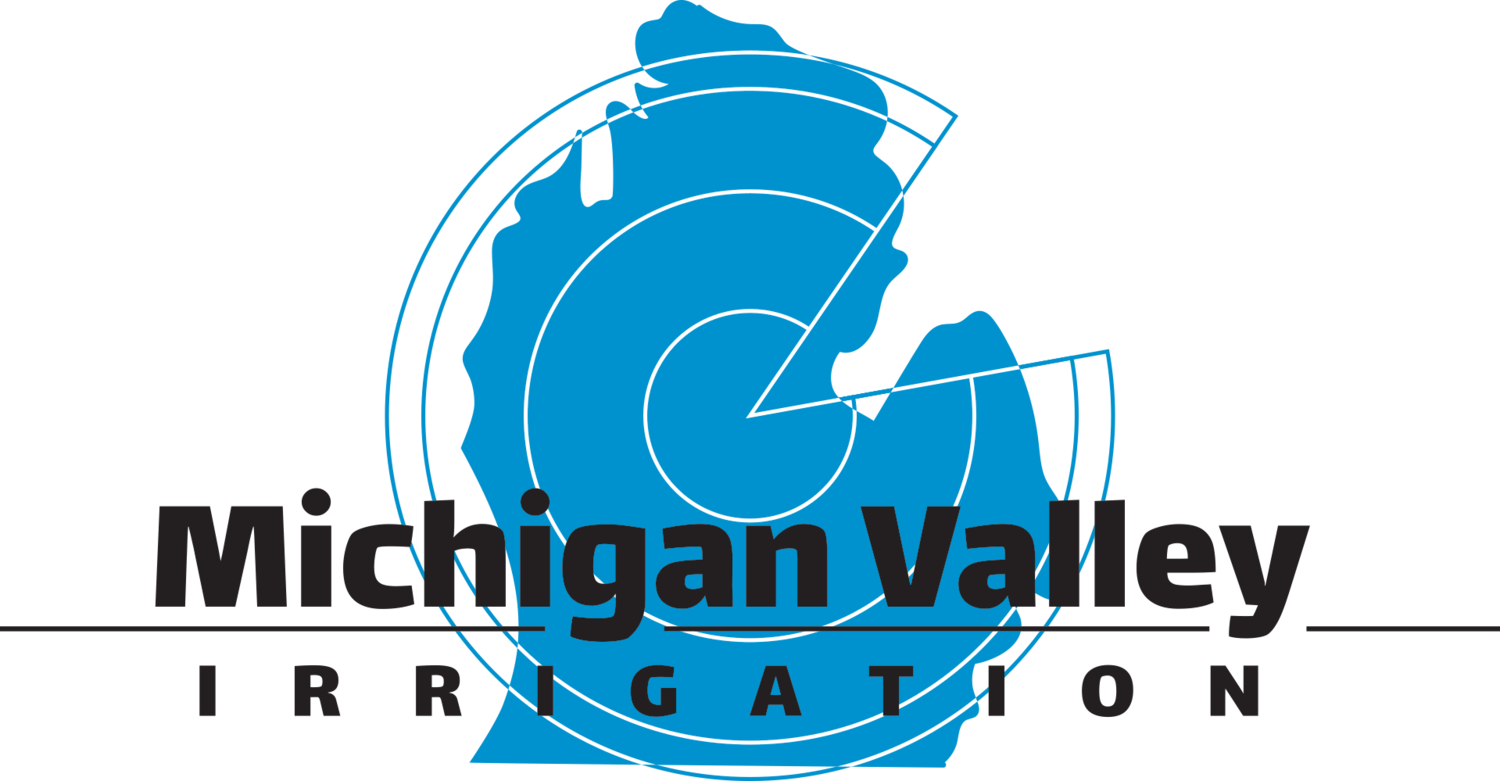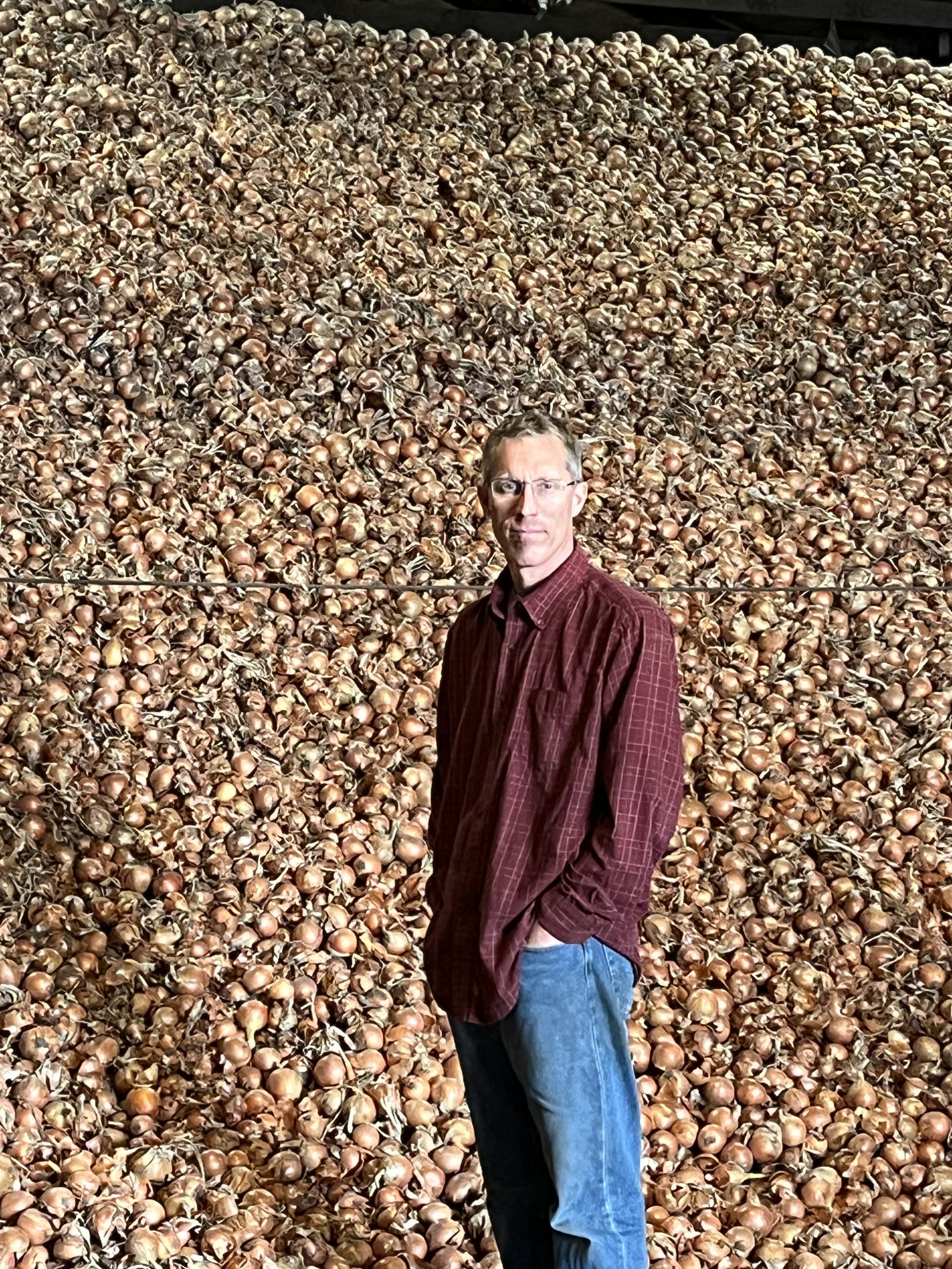Watering Crops on Muck Soils
Muck soils which are very high in organic matter have been attractive to specialty crop growers for many years. The high organic matter content creates a loose medium allowing root penetration to progress much more quickly than in mineral soils. This loose particle structure is also superior in water holding capacity to mineral soils. When drained and preserved properly it is an excellent growing medium for specialty crops such as carrots, lettuces, mint, onions, potatoes, radishes, and sod. One of the limitations is that the organic matter oxidizes when open and exposed to the elements. Of all the crops attracted to muck soils, onions may be the greatest beneficiary. The high sulfur content improves flavor cooking quality and storability.
The Brink Muck Farm in Grant, Michigan has been capitalizing on this resource and obviously doing an excellent job in taking care of their valuable soil. This family has been farming some of the same ground for nearly 100 years! Dave and Nate Brink are two generations currently managing the operation. Prior generations produced celery, onions and other cole crops, but they now focus solely on onions. They grow 120 acres of onions all of which are irrigated by either a pivot or traveler. Where the field layout works, pivots are preferred due to the tremendous labor savings. Yellow and red cooking onions are the main varieties. The high organic matter muck soils provide an excellent medium for producing these root crops but create challenges when running irrigation equipment due to rutting and deep wheel tracks from their center pivot drive wheels. To mitigate these challenges, Michigan Valley Irrigation proposed and installed several upgrades to their system. We shortened the span lengths to reduce the weight load by each drive tower. Double boom backs were installed, which move the sprinklers a distance behind the wheel tracks regardless of which way the machine is traveling. Drive wheels now can always be running over dry ground, minimizing tracks. Larger high floatation tires were installed for a bigger footprint and reduced weight per square inch of soil contact. Due to varying soil conditions, an Icon-X computer panel now operates the system allowing the Brinks to program varying rates of water applied as it travels across the field. With all these upgrades, the Brinks can now provide their onion plants with the right amount of water and greatly reduce wheel tracks.
This project is just another sign of the Brink’s commitment not only to their operation, but as industry leaders. The current management team of Dave and Nate were recently recognized with The Master Farmer Award in recognition for their outstanding farming practices as well as cooperation with MSU Researchers and Extension Educators for their leadership roles in the industry. Not surprisingly, prior generations of the Brink family were recognized for the same award back in 1966. Congratulations to the Brink Family for their commitment to Michigan Agriculture!
ABOUT THE AUTHOR
Pete is the marketing manager for Michigan Valley Irrigation, having joined the company in 2016. He was raised on a dairy farm in western New York and graduated from Cornell University with a B.S. in agricultural economics. His entire working career of over 37 years has been involved in agriculture. A farmer helping farmers. When away from Michigan Valley he operates, Joyful Noise Farm, a small livestock and produce farm and spends time with his family.







